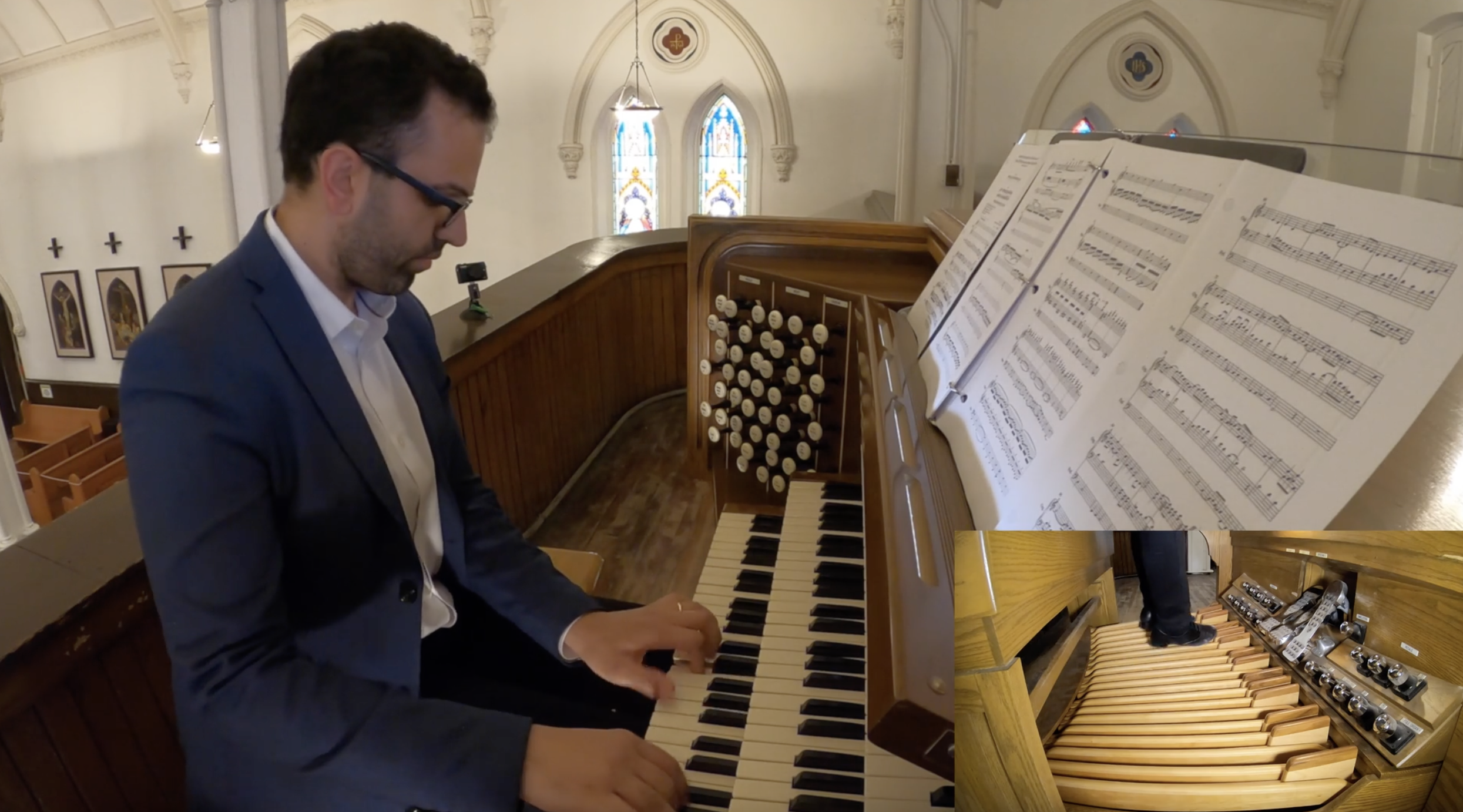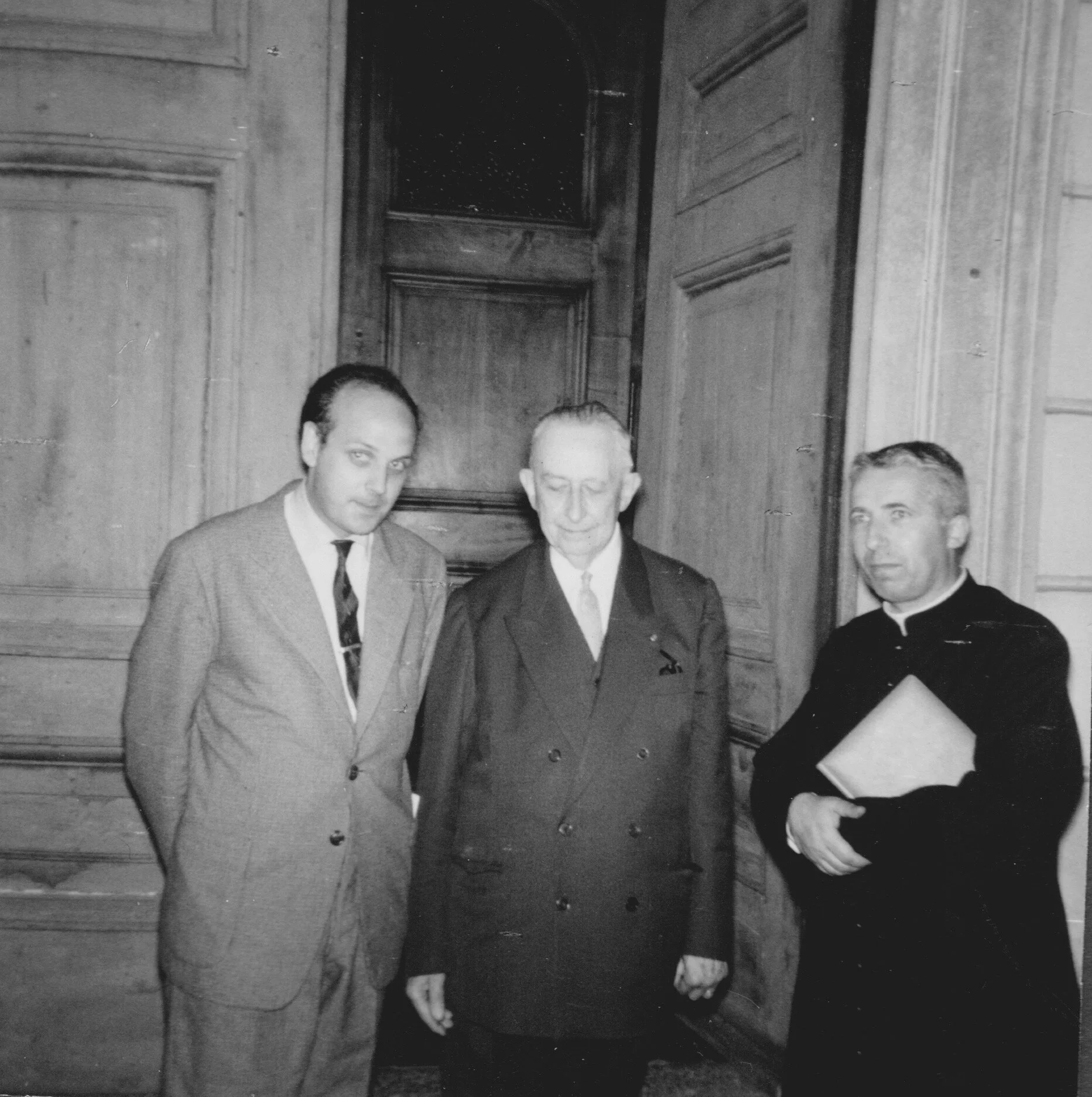The Life and Music of Victor Togni
VICTOR TOGNI (reconstruction by John Paul Farahat)
Deuxième Toccata Improvisée on the Ite missa est (Orbis factor)
Precomposed and Extemporized: Rediscovering the Life and Improvisatory Work of Canadian Organist Victor Togni (1935 - 1965) connects Togni to his European teachers, including Jean-Jacques Grunenwald, Jean Langlais, Olivier Messiaen, Marcel Dupré, Rolande Falcinelli, Jeanne Demessieux, and Fernando Germani. The text catalogues hundreds of previously-unknown archival documents, providing a full-length biography, several reconstructed improvisations from historical tapes, and an in-depth analysis of the musical language and improvisatory forms of Togni’s Five Liturgical Inventions and improvisations as they related to his unfinished organ improvisation method book.
Abstract for Precomposed and Extemporized: Rediscovering the Life and Improvisatory Work of Canadian Organist Victor Togni (1935 - 1965):
Victor Togni at the Wanamaker organ following his First Prize at the American Guild of Organists’ 1964 Improvisation Competition
The legacy of the Canadian organist Victor Togni (1935 – 1965) lies in his contributions to church and organ music as a performer, composer, pedagogue, and improviser. Considered by Jean-Jacques Grunenwald as his most gifted and brilliant student, lauded by Olivier Messiaen for his abilities as a composer, and praised by Healey Willan as being “the most accomplished and brilliant Catholic organist in Canada”, Victor Togni was a rising star of Canadian organ music. His early passing at the age of 30 in a car accident undoubtedly contributed to the dearth of published materials on his life and music. Though public awareness of Togni is limited, this dissertation brings to light substantial previously-unpublished materials, revealing a missing link in the cultural mosaic of Canadian music. It provides a biographical text on Victor Togni and assesses his role in the field of organ performance and improvisation in the mid-1900s. It addresses Togni’s role as an organist-improviser in North America, his philosophies on concert/liturgical improvisation, as well as the philosophical influence of his teachers, including Jean-Jacques Grunenwald, Jean Langlais, Marcel Dupré, and Olivier Messiaen, among others. Seventeen recordings of Togni improvising, of which fifteen are unpublished, are analyzed and contextualized. Togni’s efforts to advance the field of organ improvisation in Canada are considered, with particular importance given to Togni’s unpublished draft method book, The Liturgical Organ Improvisation. This dissertation also analyzes Togni’s well-known precomposed organ suite Five Liturgical Inventions with a view to asserting the presence of improvisatory formulas drawn from his draft improvisation method book. Furthermore, several of Togni’s extemporized works themselves are transcribed and also analyzed, showing a more complete picture of Togni’s improvisatory style. The centrality of Togni’s unpublished method book both in his precomposed and his extemporized works is shown, reemphasizing his efforts to advance the field of organ improvisation in Canada.
Victor Togni with Jean-Jacques Grunenwald in 1963 at the International Organ Festival of Magadino
Victor Togni (far right) with Olivier Messiaen (third from left)
Victor Togni (left) with Marcel Dupré (centre) and Don Aldo Lanini (right) in 1963




